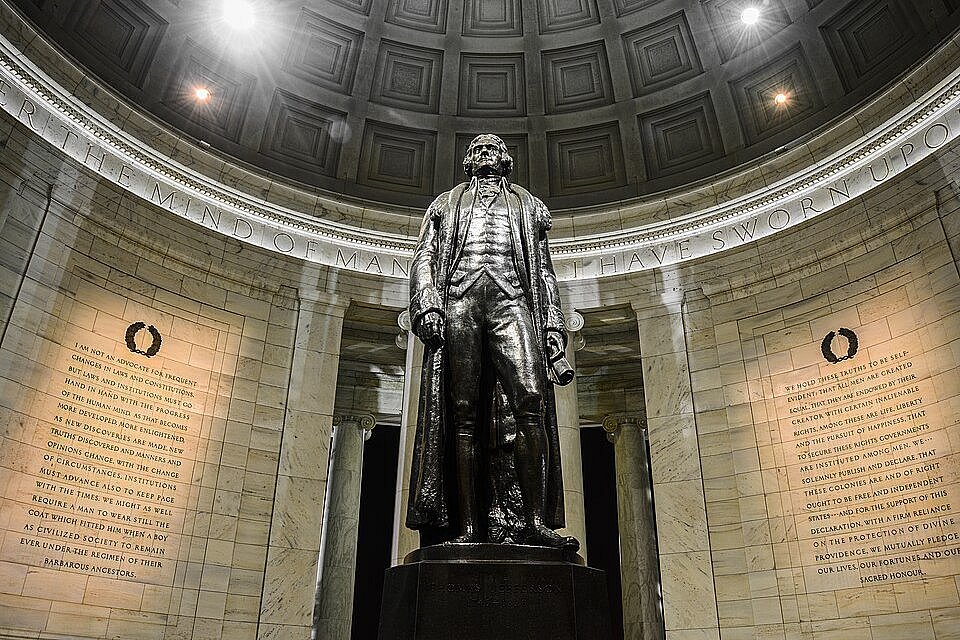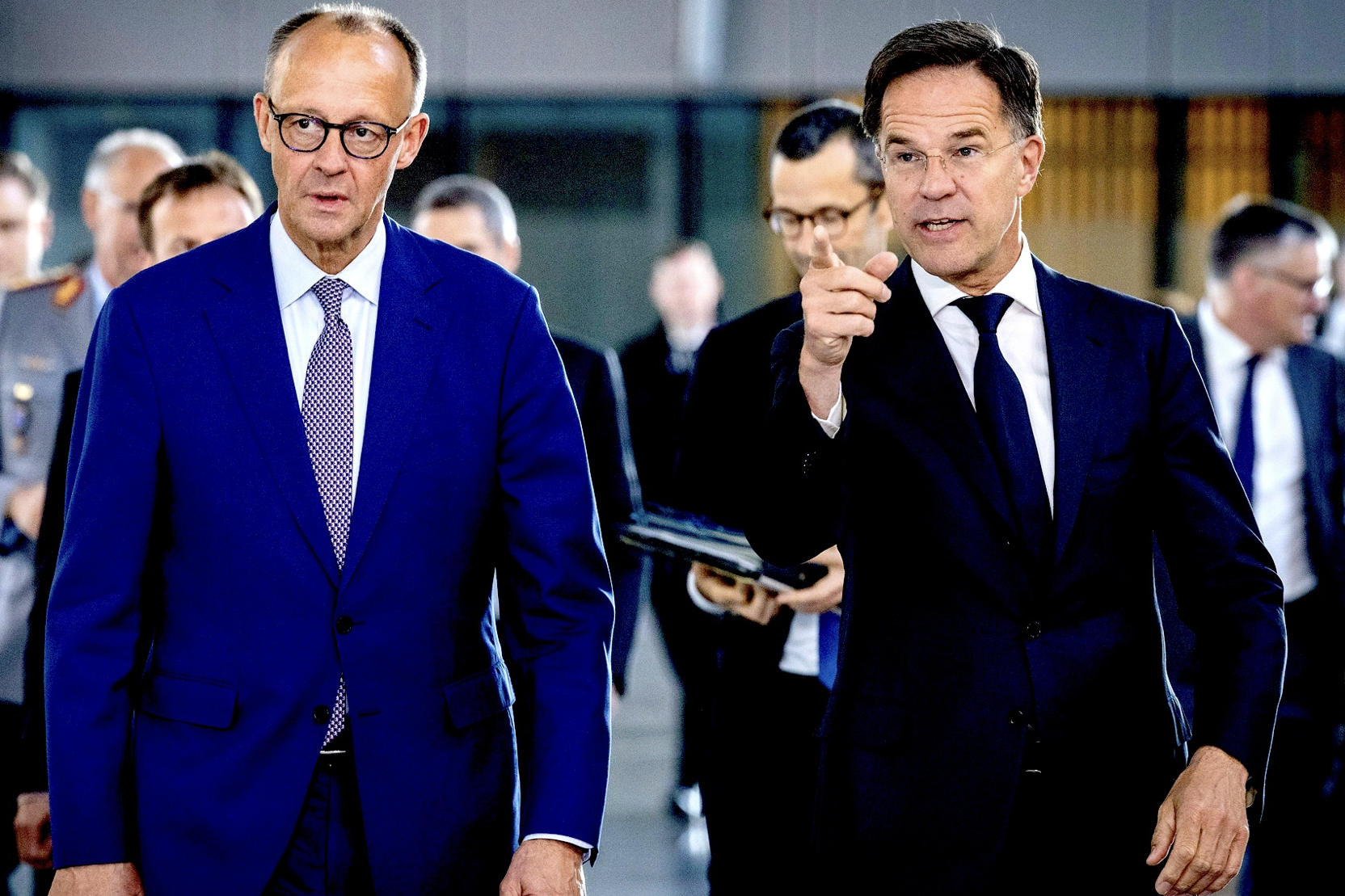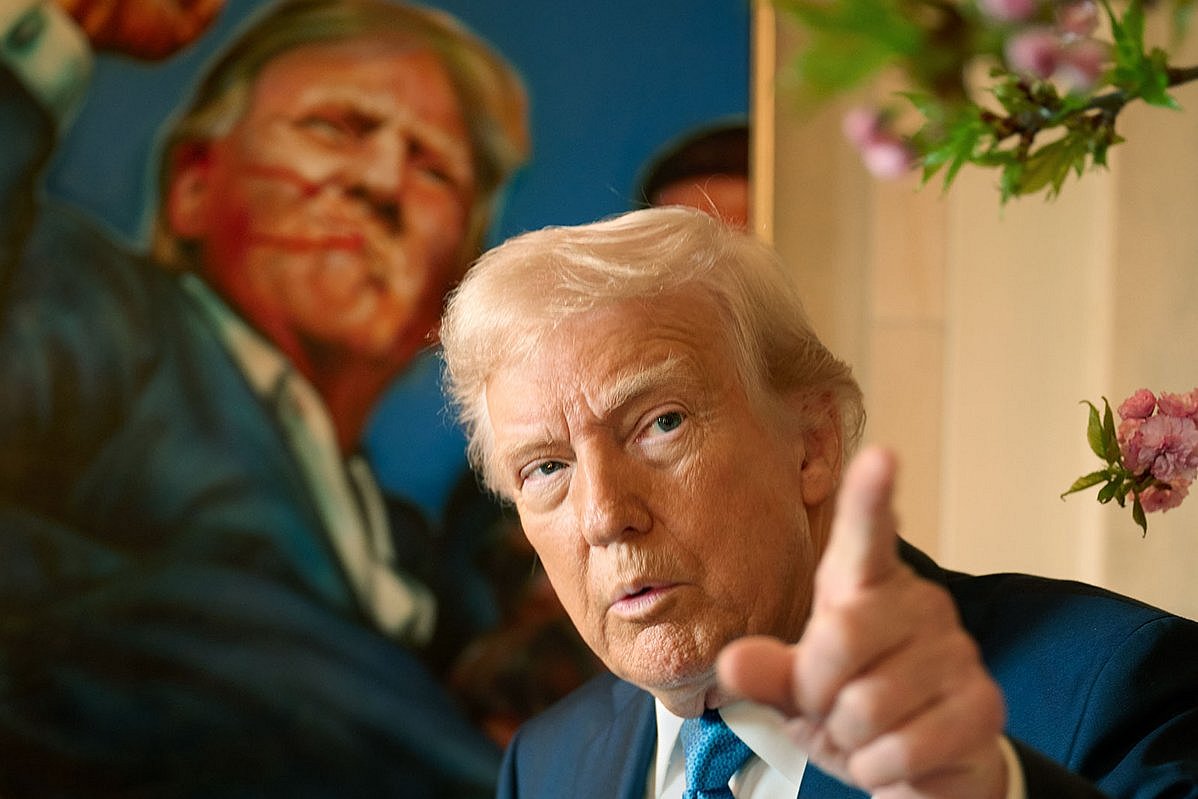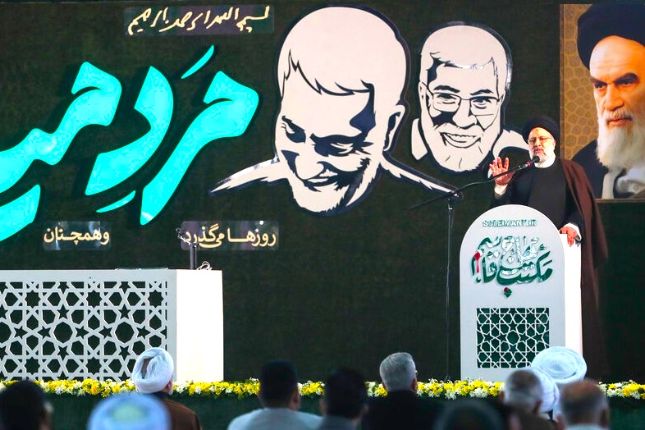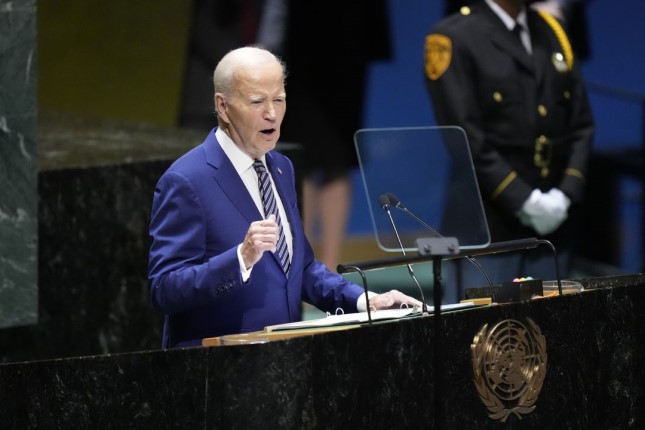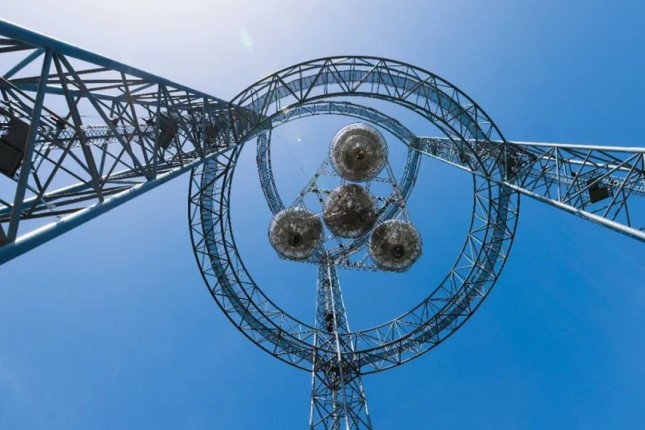Declassified recently revealed that BP has pumped Iraqi oil worth £15 billion since the U.K. and U.S. militaries invaded the country in 2003.
Governments in London and Washington long denied the Iraq war was about oil. Yet BP returned to the country in 2009 after a 35-year absence and was awarded a significant interest in Iraq’s largest oil field near British-occupied Basra in the south of the country.
Something similar happened in Libya following another U.K. military intervention in 2011.
Eleven years after that war, in October last year, Libya’s National Oil Corporation agreed that BP would start drilling for natural gas in the country. BP controls exploration areas in Libya covering nearly three times the size of Wales.
British officials have a longstanding habit of fighting wars which they claim to be in the interests of human rights that are really about oil or geopolitics.
Declassified files show that Harold Wilson’s Labour government secretly armed and backed Nigeria’s aggression against the secessionist region of Biafra in the late 1960s. The priority was again oil interests, then owned jointly by BP and Shell.
The impacts of Britain’s oil wars could hardly be greater. The war over Biafra was the world’s worst humanitarian crisis of the late 1960s, causing the deaths of up to 3 million people.
In Iraq, hundreds of thousands were killed amidst a humanitarian catastrophe.
Libya, meanwhile, was turned into a safe haven for terrorism and slave markets and was plunged into a civil war from which it is yet to recover.
Dictatorships
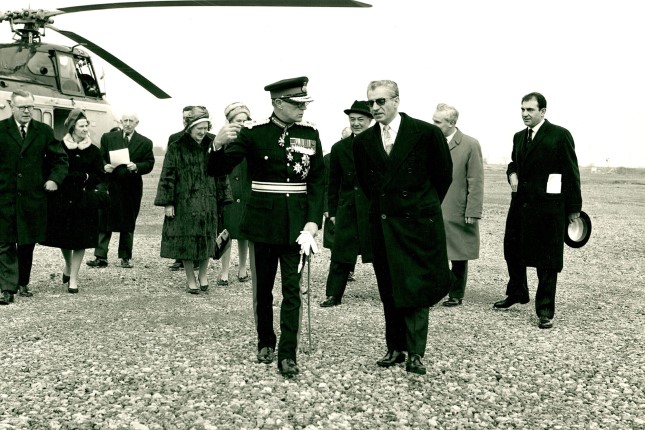
March 6, 1965: The Shah of Iran, in right foreground, visiting West Burton Power Station in England with Sir Robert Laycock, lord lieutenant of Nottinghamshire, after arriving in a Westland Whirlwind XR487 of the Queens Flight. Photo: C.E.G.B. / Wikimedia Commons / CC BY-SA 2.0.
Another of Whitehall’s ugly habits – backing repressive regimes around the world – is also substantially explained by its promotion of BP’s interests.
The best-known, and one of the most far-reaching, U.K. coups since the Second World War occurred in Iran in 1953. MI6 and the C.I.A. overthrew the country’s democratically-elected government that had nationalised the country’s oil: the main target being the Anglo Iranian Oil Corporation, a forerunner of BP.
Files show Britain preferred a dictator in power in Tehran who would cater to BP’s profit-seeking. So, London and Washington installed the Shah, who ruled with an iron fist for the next quarter of a century with British and U.S. backing.
Fast forward 40 years, and MI6 was reportedly involved in two coups in oil-rich Azerbaijan, in 1992 and 1993, to promote British — specifically BP’s — oil interests in the country.
Few details are known about these episodes; one British media report detailing the operations was pulled, possibly the result of a government D-Notice (a censorship request) and little has emerged since.
It is also British oil interests that explain why Whitehall has sought the removal of the Nicolás Maduro government in Venezuela, a country which boasts the largest proven oil reserves in the world.
Alan Duncan, who served from 2016-19, was one of the ministers behind the U.K. regime change effort in Venezuela, which entailed recognising opposition figure Juan Guaidó as president.
Duncan noted that: “The revival of the oil industry [in Venezuela] will be an essential element in any recovery, and I can imagine that British companies like Shell and BP will want to be part of it.”
Egypt, Oman, Venezuela
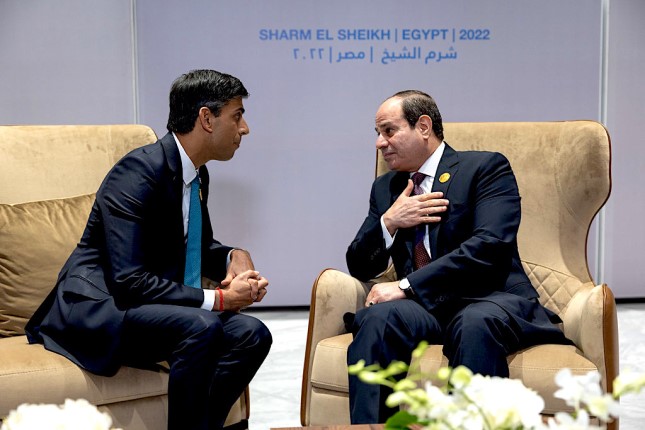
Egyptian President Fattah al-Sisi, on right, meeting with U.K. Prime Minister Rishi Sunak on Nov. 7, 2022, the first day of COP27, the U.N. climate meeting. Photo: Simon Walker / No 10 Downing Street.
While claiming to champion democracy, Whitehall planners regularly prefer dictators because they are better for business.
In Egypt, the U.K. has helped prop up Abdul Fattah al-Sisi since he assumed power in 2014 after a military coup overthrew the country’s first democratically-elected leader the previous year.
The key U.K. interest in Egypt driving its backing for its dictator, who has embarked on unprecedented political repression in the country, is oil. BP has in recent decades produced almost 40 percent of Egypt’s oil and currently produces 50 percent of its gas.
In 2015, the year after Sisi took power, BP announced a new $9 billion investment in the West Nile Delta gas development, which includes five gas fields. The company currently holds an 83 percent stake in the project, which accounts for 25 percent of Egypt’s gas production.
On the other side of the Red Sea in Arabia sits Whitehall’s closest ally in the Middle East, the dictatorship of Oman. Its previous sultan, who ruled for 50 years, was installed in 1970 in an SAS-backed coup and it secretly houses U.K. spy bases.
BP has major investments in Oman, including what it calls the “giant Khazzan gas field,” in which the company owns a 60 percent stake – a very high proportion by international standards – leaving the Omani state with 40 percent.
Secret Dealings in Brazil
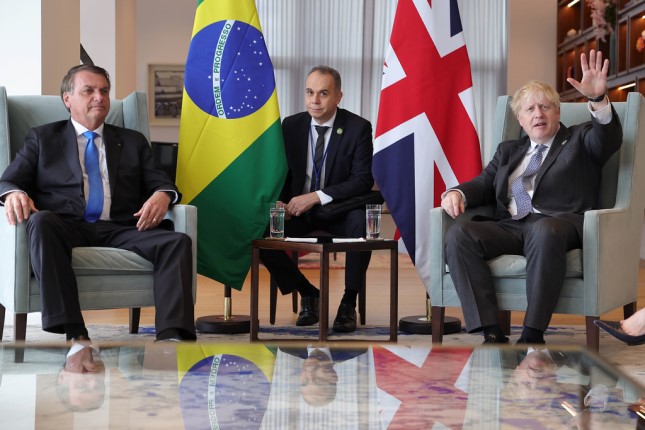
Sept. 20, 2021: Brazil’s President Jair Bolsonaro, left, meeting with U.K. Prime Minister Boris Johnson, right, on the sidelines of the U.N. General Assembly in New York. Photo: Andrew Parsons / No 10 Downing Street.
It was also oil interests that substantially explained Britain’s secret dealings with Brazil’s Jair Bolsonaro, who was in power during 2019-22, and the Brazilian far right.
U.K. officials had long had their eye on the South American country’s economic resources, including its oil and gas reserves.
Millions of pounds worth of British aid was spent during Bolsonaro’s presidency focused on “opening up” Brazil’s energy markets to provide “opportunities” for British business.
Documents reveal that British officials met with the Bolsonaros in the months running up to Brazil’s 2018 election and continued to collaborate with them following it.
The U.K. had lobbied the Brazilian government on behalf of BP and Shell in 2017 and Britain’s ambassador in Brasília, Vijay Rangarajan, met representatives of both companies no less than 20 times during 2018 and 2019.
The Russian Connection

BP petrol station on Bibirevskaya Street in Moscow, 2016. Photo: Gennady Grachev / Wikimedia Commons / CC BY 2.0.
Russia has been another major prize for BP in recent decades. The corporation helped Vladimir Putin secure his hold on the country by pumping vast amounts of oil until it announced it was leaving the country following the 2022 invasion of Ukraine.
Declassified found that, under Putin’s rule since 2000, BP extracted oil worth no less than £271 billion from Russia.
The strategy was secured with the help of then Prime Minister Tony Blair who told Putin in 1999 that BP’s assets were “an important British interest in Russia.”
By 2003, BP had become the largest foreign investor in Russia’s history with the corporation’s partnership with state-owned gas company Gazprom “blessed…by Putin himself,” according to a leaked U.S. cable.
Evidence suggests Blair and MI6 helped Putin first get elected in 2000 and that one reason was to help BP’s then-imperiled interests in Russia.
Foreign Office documents obtained by Declassified showed that Blair was asked to lobby for BP regarding the bankruptcy of Russian oil company Sidanco in which BP had bought a 10 percent stake in 1997 for $571 million.
Sidanco was eventually saved and in 2002, BP increased its stake in the company to 25 percent for a further $375 million.
In 2003, BP paid another $7 billion to Russian oil company TNK to form a 50-50 joint venture to exploit Siberia’s oil deposits.
In his dealings with Putin at this time, Blair ignored Russia’s brutal war in Chechnya in favour of a charm offensive, including the export of U.K. military equipment, whose purpose was substantially to secure Russian oil for BP.
The Intelligence Connection
BP was founded in 1909 as the Anglo-Persian Oil Company and changed its name to the British Petroleum Company in 1954.
The corporation has long been close to Britain’s Secret Intelligence Service, MI6.
In a 2007 Mail on Sunday article, which was subsequently taken down, a company whistleblower claimed “BP was working closely with MI6 at the highest levels to help it to win business…and influence the political complexion of governments.”
Renegade former MI6 officer Richard Tomlinson wrote in his 2001 memoir that BP has “MI6 liaison officers who receive relevant CX [intelligence]”.
One figure who has done well out of BP is former MI6 chief Sir John Sawers, who joined the corporation as a non-executive director in May 2015. He was apparently “identified” the previous year as he stepped down as head of the spy agency.
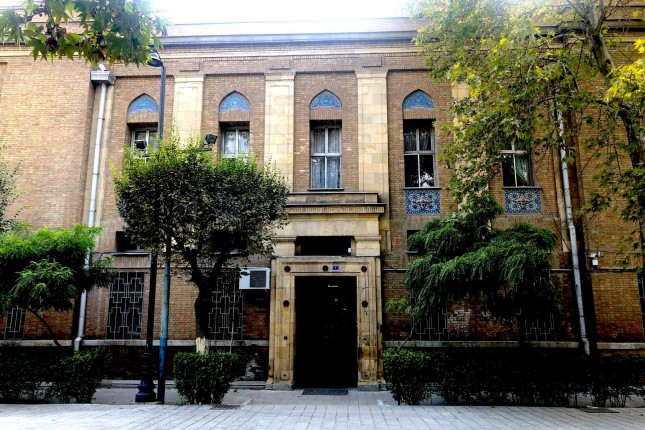
Anglo-Persian Oil Company’s former building in Tehran. Photo: GTVM92 / Wikimedia Commons / CC BY-SA 4.0.
Over the following seven years, Sawers earned £1.1 million in fees from the company and accrued a shareholding worth £135,000 last year.
“John brings long experience of international politics and security that are so important to our business,” BP reported.
Sawers served as Blair’s foreign policy adviser from 1999-2001 and in May 2003 was appointed Britain’s first special representative to post-invasion Iraq.
Another senior MI6 figure, its former head of counterterrorism Sir Mark Allen, also joined BP after leaving government service, helping the company to negotiate a £15 billion oil drilling contract with Muammar Gaddafi, the then Libyan dictator.
Allen had developed a relationship with the Gaddafi regime while in MI6.
The Ever-Turning Revolving Door
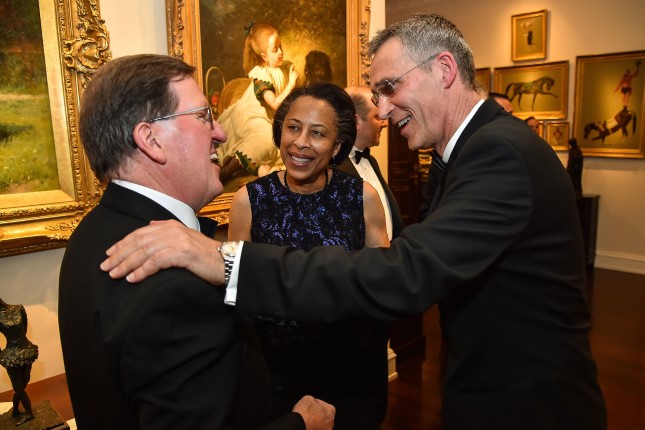
Former NATO Secretary General George Robertson, left, and NATO Secretary General Jens Stoltenberg, right, at an Atlantic Council award event in June 2017. Photo: NATO / Flickr.
The revolving door between MI6 and Whitehall barely stops turning. Senior officials who became advisers to BP include General Nick Houghton, the former chief of the defence staff, and Lord George Robertson, Labour’s former defence secretary who went on to become NATO secretary-general.
But the door also revolves the other way, meaning BP officials can join the government. John Manzoni, who spent 24 years at BP, including on its main board, before becoming permanent secretary to the Cabinet Office — one of the U.K.’s most senior civil servants — and chief executive of the Civil Service from 2014-20.
Two BP chief executives, Bernard Looney and Bob Dudley, recently sat on Boris Johnson and David Cameron’s Business Council and Business Advisory Group, respectively.
Under Labour matters are little different. Within days of Blair’s 1997 election victory, former BP chairman Sir David Simon was ennobled and made a trade minister.
Secondments are another way the close connections are forged. For example, Simon Collis, who went on to become British ambassador to Saudi Arabia, Iraq, Syria and Qatar, went on secondment to BP between earlier diplomatic postings in Jordan and the United Arab Emirates.
In that position, he acted as BP’s political and government relations manager for the Middle East.
Consequences
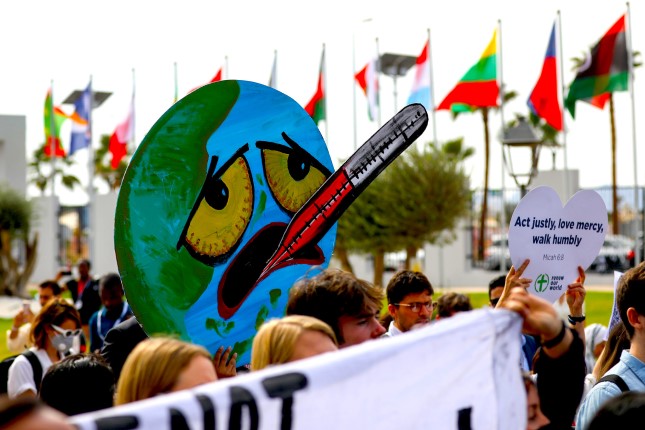
People’s Plenary, COP27, Sharm el-Sheikh, Egypt, November 2022. Photo: UNclimatechange / Flickr.
Britain’s promotion of BP has major consequences. The corporation, which works in over 60 countries, is among the four global businesses responsible for over 10 percent of the world’s carbon emissions since 1965 (the other three being Shell, Chevron and Exxon).
Campaign group Global Justice Now estimates that BP’s impact on climate change could cost countries in the global south an astronomical $1.56 trillion.
BP made its largest profit in 2022 (£32 billion) for over a century as energy bills for the British public soar and demands to impose greater taxes on the corporation increase. The corporation claims to be making a transition to green energy but still invests vastly more in fossil fuels.
In a recent survey the U.K. public regarded climate change as the No. 1 security threat it faces. This means BP plays a key part in endangering the lives of the British and world public.
Wars, coups, dictatorships and climate change are all consequences of Whitehall’s promotion of BP. Currently, the British government has it the wrong way round — it should be sanctioning and censoring its long standing oil partner, not empowering and conniving with it.
Main photo: RAF Tornado being prepared for a sortie to help enforce the no-fly zone over Libya, March 2011 © Neil Chapman / MOD.
Source: Consortium News.




















